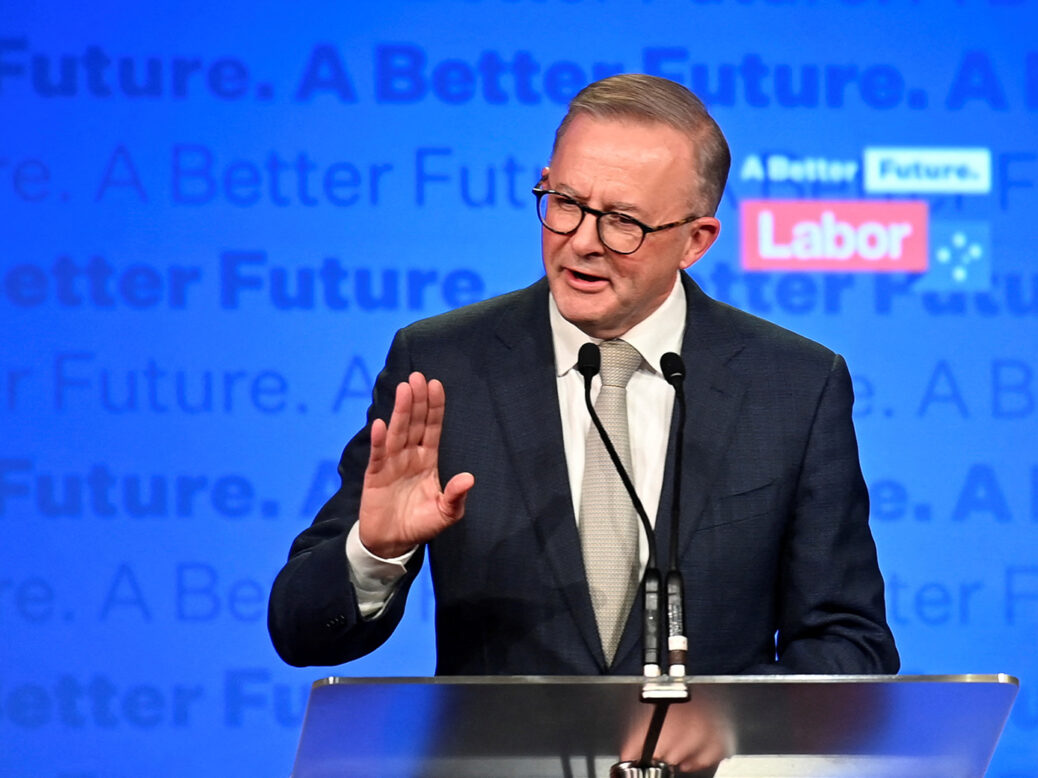
As the results rolled in across Australia, Labor activists were experiencing two forgotten feelings. First, relief. The opinion polls that misled in the run-up to the 2019 election – when leader Labor leader Bill Shorten managed to lose the “unlosable” election to Scott Morrison – proved to be correct this time. And then, joy. One of their own had won. Anthony Albanese, the son of a single mother from public housing, would be the prime minister.
Watching from the UK, the British Labour Party probably shared those emotions, with an added third: envy. Albanese defeated a populist prime minister known for playing fast and loose with rules and for masking his incompetence by stoking the culture wars. Yet only a year ago, Morrison was riding high in the opinion polls.
How did he do it? As the moderates around Keir Starmer will stress, it started with a willingness to abandon the radical commitments his predecessor, Shorten, adopted. Australian Labor’s last campaign was structured around an attack on the privileged few – “the top end of town” – accompanied by an extraordinarily long, detailed and far-reaching policy programme. Albanese, under the guidance of Labor’s charismatic national secretary, Paul Erickson, got rid of it all.
In its place, he adopted an intentionally “small-target” strategy. His language was determinedly moderate. His policy platform as unremarkable as possible given the times.
All of this mattered, of that there can be no doubt. But there was more to Albanese’s success than centrism alone. Albanese’s primary success lay in his unique ability to see off the culture wars.
Morrison was convinced that he could suck Labor into ferocious arguments about transgender participation in sport, the rights of religious schools to discriminate against gay and lesbian children, and the apparent ongoing perils of illegal immigration. The now former prime minister believed that Albanese would not be able to resist going toe-to-toe with him on each and every one of these issues, playing to his socially liberal, inner-city base and alienating less affluent, traditional Labor voters as he did so.
But Albanese steadfastly refused to rise to the bait. Instead, he perfected incredulity and disdain. Albanese daily insisted that Morrison was fixated on the unpleasant obsessions of a tiny number of reactionary voters, not because he was channeling a nation’s secret common sense, but simply because he had nothing else to say.
In so doing, Albanese showed the culture wars up for what they are: ridiculous, indecent and an absurd distraction from the vital work that has to be done. All of this put Labor in a strong position. But there was still something missing.
Unlike the famous Australian Labor campaigns of 1972 or 2007, there was not much to quicken the pulse in Albanese’s bid for power. Fortunately that excitement could be found elsewhere. A series of independent candidates, supported by the wealthy climate change activist Simon Holmes à Court, targeted high-profile seats in the affluent inner cities.
Known as the “teals” – the colour in between conservative blue and green – this group of almost entirely female candidates made powerful calls for action on climate, gender equity and corruption. They injected the unmistakable energy of vibrant social movements into the campaign, while also forcing Morrison to direct attention to a sea of seats that had never been in play before (ultimately winning seven).
The lessons of all of this should be clear. It was the combination of an unflashy and unflappable Labor leader, on the one hand, and the passion of a new generation of independents challenging the status quo, on the other, that did for Scott Morrison. One without the other would not have done it. You could almost call it a progressive alliance.
[See also: Why a Labour-Lib Dem alliance at the next election is inevitable]






